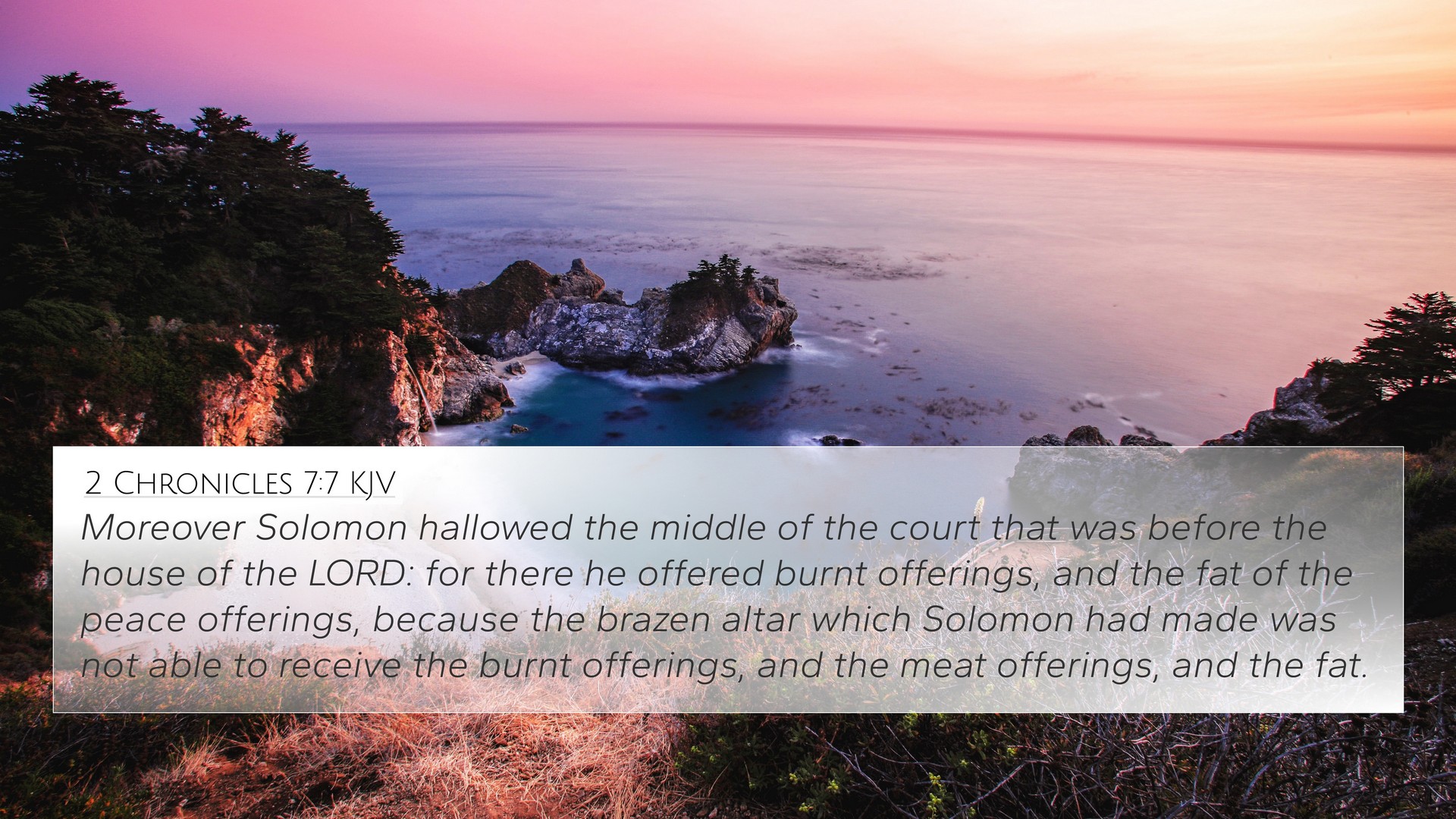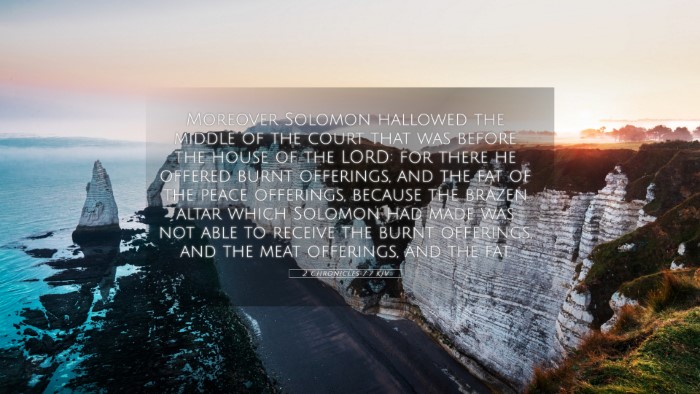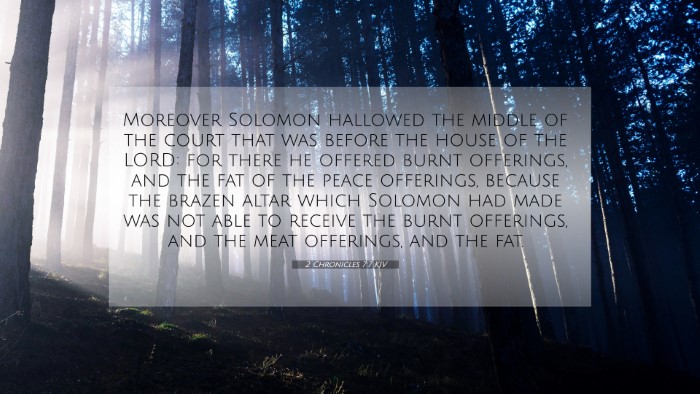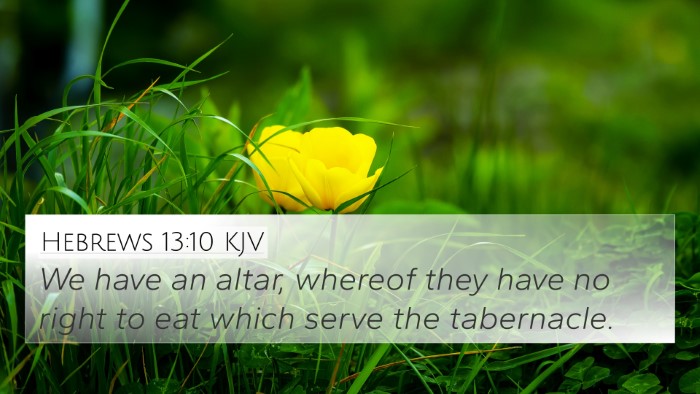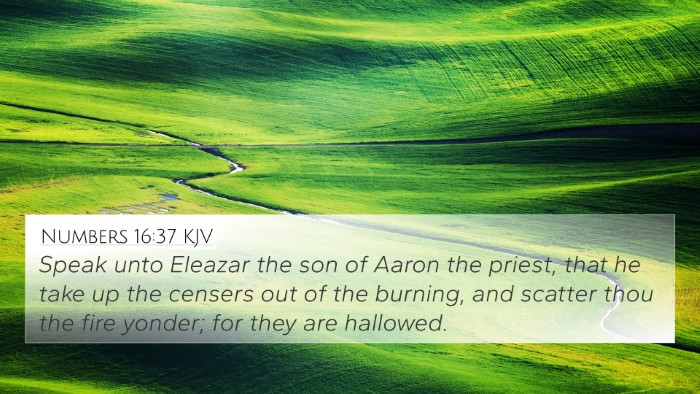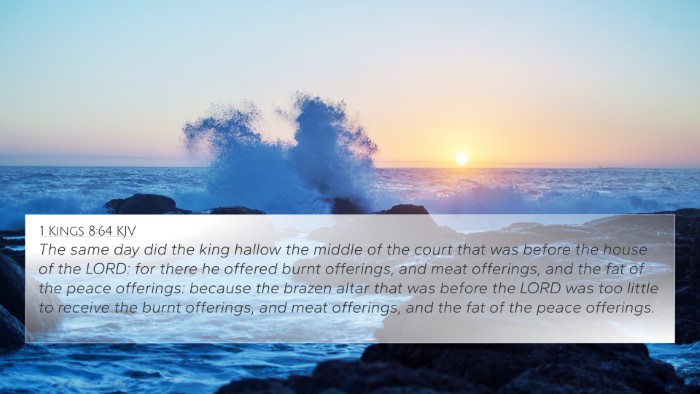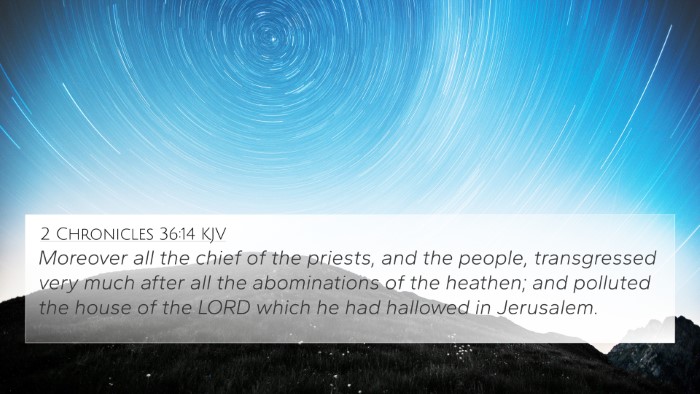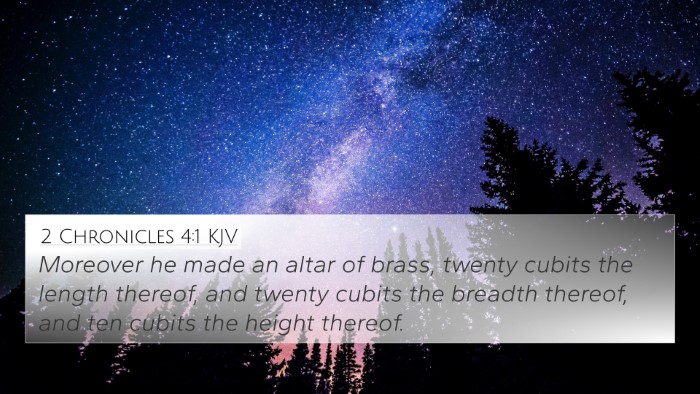Understanding 2 Chronicles 7:7
Verse Text: “And the king turned his face, and blessed the whole congregation of Israel: and all the congregation of Israel stood.”
Verse Meaning and Interpretation
This verse captures a significant moment in the reign of King Solomon, marking the blessing of the people of Israel after the dedication of the temple. Through insights gleaned from valuable sources such as Matthew Henry, Albert Barnes, and Adam Clarke, we can extract a multidimensional understanding of this scripture.
1. King Solomon's Role
According to Matthew Henry, Solomon's act of turning his face to bless the congregation signifies his authority and responsibility as king. This act serves as a spiritual leadership moment, where Solomon intercedes on behalf of the people, illustrating the importance of the king’s role not only as a political leader but as a mediator of God's blessings.
2. The Importance of Blessing
Albert Barnes emphasizes that blessings from the king were an integral part of Israel's worship. Blessings were not merely ceremonial but carried the weight of divine approval and favor. Solomon's blessing parallels the Old Testament significance of leadership as it relates to the community’s covenant relationship with God.
3. The Congregation's Posture
Adam Clarke notes that the congregation standing in response to Solomon's blessing demonstrates their reverence. This posture indicates their acknowledgment of God’s presence and the importance of the moment, as it underscores the communal aspect of worship and collective unity before God.
Cross-References and Connections
To fully appreciate 2 Chronicles 7:7, it is crucial to explore its connections with other scriptural texts:
- 1 Kings 8:14-21: Solomon’s dedication of the temple and the assembly of Israel signify a similar theme of worship and communal acknowledgment of God’s glory.
- Numbers 6:24-26: The priestly blessing serves as a foundational scriptural reference to blessings that connect the divine with community.
- Deuteronomy 28:1-14: This passage discusses the blessings that follow obedience, reinforcing the covenant relationship depicted in 2 Chronicles 7:7.
- Psalms 133:1: The significance of unity among brethren is echoed, reminding the reader of the importance of collective worship in relation to God’s blessings.
- Matthew 5:14-16: Jesus’ teaching on being the light of the world parallels the idea of a leader guiding the community towards divine approval and visibility among nations.
- Acts 3:26: This passage illustrates the prophetic tradition of blessings as a means of connecting God’s promises to the community, with Jesus as the ultimate source of blessing.
- Hebrews 7:7: The concept that “without all contradiction the less is blessed of the better” enriches the understanding of authority in the context of blessings.
Thematic Insights
This verse reflects profound themes such as:
- Leadership and Responsibility: Reflecting on how leaders hold the power to bless and guide.
- Covenantal Relationships: Understanding how blessings are intricately linked to the faithfulness of Israel toward God.
- Community Worship: The significance of collective congregational worship and unity in seeking divine favor.
- Spiritual Mediation: The role of anointed leaders as intermediaries between God and the people.
Conclusion
In summary, 2 Chronicles 7:7 serves as a pivotal verse that encapsulates the essence of Solomon's kingship, the significance of blessing, and the communal response of Israel. By examining this verse through the lens of the provided commentaries, along with an exploration of cross-references, we can appreciate the integral role of blessings in the biblical narrative. This analysis does not just enhance our understanding but also encourages a deeper reflection on our contemporary worship practices and our own roles as spiritual leaders in our communities.
